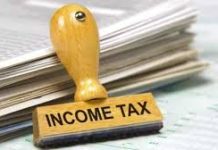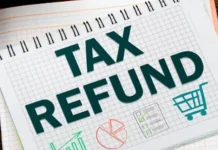IT Returns – Guide for e-Filing of Income Tax Return (ITR) Online
As per section 139(1) of the Income Tax Act, 1961 in the country, individuals whose total income during the previous year exceeds the maximum amount not chargeable to tax, should file their income tax returns (ITR).
The process of electronically filing income tax returns is known as e-filing. You can either seek professional help or file your returns yourself from the comfort of your home by registering on the income tax department website or other websites. The due date for filing tax returns (physical or online), is July 31st.
Who should e-file income tax returns?
Online filing of tax returns is easy and can be done by most assessees.
-
- Assessee with a total income of Rs. 5 Lakhs and above.
- Individual/HUF resident with assets located outside India.
- An assessee required to furnish a report of audit specified under sections 10(23C) (IV), 10(23C) (v), 10(23C) (VI), 10(23C) (via), 10A, 12A (1) (b), 44AB, 80IA, 80IB, 80IC, 80ID, 80JJAA, 80LA, 92E or 115JB of the Act.
- Assessee required to give a notice under Section 11(2) (a) to the assessing officer.
- A firm (which does not come under the provisions of section 44AB), AOP, BOI, Artificial Juridical Person, Cooperative Society and Local Authority (ITR 5).
- An assessee required to furnish returns U/S 139 (4B) (ITR 7).
- A resident who has signing authority in any account located outside India.
- A person who claims relief under sections 90 or 90A or deductions under section 91.
- All companies.
Types of e-Filing:
-
-
- Use Digital Signature Certificate (DSC) to e-file. It is mandatory to file IT forms using Digital Signature Certificate (DSC) by a chartered accountant.
- If you e-file without DSC, ITR V form is generated, which should then be printed, signed and submitted to CPC, Bangalore by ordinary post or speed post within 120 days from the date of e-filing.
- You can file e-file IT returns through an E-return Intermediary (ERI) with or without DSC.

Checklist for e-Filing IT Returns
There are a few prerequisites to filing your tax returns smoothly and effectively. Major points have been highlighted below.
-
- How to choose the right form to file your taxes electronically
- It can be confusing deciding which form to submit when filing your tax returns online. The different categories of Income Tax Return (ITR) forms and who they are meant for are tabulated below.
ITR 1 (SAHAJ) Individuals with income from salary and interest ITR 2 Individuals and Hindu Undivided Families (HUF) not having income from business or profession ITR 3 Individuals/HUFs being partners in firms and not carrying out business or profession under any proprietorship ITR 4 Individuals and HUFs having income from a proprietary business or profession ITR 4S (SUGAM) Individuals/HUF having income from presumptive business ITR 5 Firms, AOPs,BOIs and LLP ITR 6 Companies other than companies claiming exemption under section 11 ITR 7 Persons including companies required to furnish return under section 139(4A) or section 139(4B) or section 139(4C) or section 139(4D
-
- Check your tax credit – Form 26AS vs. Form 16You should check Form 26AS before filing your returns. It shows the amount of tax deducted from your salary and deposited with the IT department by your employer. You should ensure that the tax deducted from your income as per your Form 16 matches with the figures in Form 26AS. If you file your returns without clarity on errors, you will get a notice from the IT department.
- Claim 80G, savings certificates and other deductionsYou can claim extra deductions if you forgot to claim them. Similarly, you can also claim deductions under section 80G on donations made to charitable institutions.
- Interest statement – Interest on savings accounts and fixed depositsA deduction for up to Rs.10,000 is allowed on interest earned on savings accounts. However, interest earned on bank deposits, if any, forms a part of your taxable income and is taxable at applicable slab rates.
- In addition to the above, have the following at hand.
- Last year’s tax returns
- Bank statements
- TDS (Tax Deducted at Source) certificates
- Profit and Loss (P&L) Account Statement, Balance Sheet and Audit Reports, if applicable
- Ensure your system is equipped with the below.
List of Required Documents for e-filing of tax returns
It is always good to stay a step ahead, especially when it comes to tax filing. The checklist provided below will help you to get started with the e-filing of tax returns.
General details:
- Bank account details
- PAN Number
Reporting salary income:
- Rent receipts for claiming HRA
- Form 16
- Pay slips
Reporting House Property income:
- Address of the house property
- Details of the co-owners including their share in the mentioned property and PAN details
- Certificate for home loan interest
- Date when the construction was completed, in case under construction property was purchased
- Name of the tenant and the rental income, in case the property is rented
Reporting capital gains:
- Stock trading statement is required along with purchase details if there are capital gains from selling the shares
- In case a house or property is sold, you must sought sale price, purchase price, details of registration and capital gain details
- Details of mutual fund statement, sale and purchase of equity funds, debt funds, ELSS and SIPs
Reporting other income:- The income from interest is reported. In case of interest accumulated in savings account, bank account statements are required
- Interest income from tax saving bonds and corporate bonds must be reported
- The income details earned from post office deposit must be reported
Income Tax Slab Rates
Income Tax Slab rates For Financial Year 2017 – 2018 And Assessment Year 2018-2019
(As Declared in the New Budget) :
For Individuals and HUF (Age – Less than 60 years):
Income Tax Slab Tax rate Up to Rs.2,50,000 NIL Above Rs.2,50,000 and up to Rs.5,00,000 5% Above Rs.5,00,000 and up to Rs.10,00,000 20% Above Rs.10,00,000 30%
*10% of tax will be imposed as surcharge in case the total income is between Rs.50 Lakhs and Rs.1 crore.*15% of tax will be imposed as surcharge in case the total income is above Rs.1 crore.
For Individuals and HUF (Age – 60 years and more, but less than 80 years):
Income Tax Slab Tax rate Up to Rs.3,00,000 NIL Above Rs.3,00,000 and up to Rs.5,00,000 5% Above Rs.5,00,000 and up to Rs.10,00,000 20% Above Rs.10,00,000 30%
*10% of tax will be imposed as surcharge in case the total income is between Rs.50 Lakhs and Rs.1 crore.*15% of tax will be imposed as surcharge in case the total income is above Rs.1 crore.
For Super Senior Citizens (age – 80 years and more):
Income Tax Slab Tax rate Up to Rs.5,00,000 NIL Above Rs.5,00,000 and up to Rs.10,00,000 20% Above Rs.10,00,000 30%
*10% of tax will be imposed as surcharge in case the total income is between Rs.50 Lakhs and Rs.1 crore.*15% of tax will be imposed as surcharge in case the total income is above Rs.1 crore.
Income Tax Slab Rates for Year 2016 – 2017 :
For Individuals and HUF (Age – Less than 60 years):
Income Tax Slab Tax Rate Up to Rs.2,50,000 NIL Above Rs.2,50,000 and up to Rs.5,00,000 10% Above Rs.5,00,000 and up to Rs.10,00,000 20% Above Rs.10,00,000 30%
*12% surcharge is imposed in case the total income is above Rs.1 crore.For Senior Citizens (Age – 60 years and more, but less than 80 years):
Income Tax Slab Tax Rate Up to Rs.3,00,000 NIL Above Rs.3,00,000 and up to Rs.5,00,000 10% Above Rs.5,00,000 and up to Rs.10,00,000 20% Above Rs.10,00,000 30%
*12% surcharge is imposed in case the total income is above Rs.1 crore.For Super Senior Citizens (Age – 80 years and more):
Income Tax Slab Tax Rate Up to Rs.5,00,000 NIL Above Rs.5,00,000 and up to Rs.10,00,000 20% Above Rs.10,00,000 30% *12% surcharge is imposed in case the total income is above Rs.1 crore.
Income Tax Return Due Date:
Generally, the due date for filing Income Tax Return (ITR) for Hindu Undivided Family (HUF)/ Individuals/ AOP (Association of Persons)/ BOI (Body of Individuals) is 31st July of the next Financial Year. For example – The ITR due date for Financial Year 2016-17 would be 31st July, 2017.






Comments are closed.